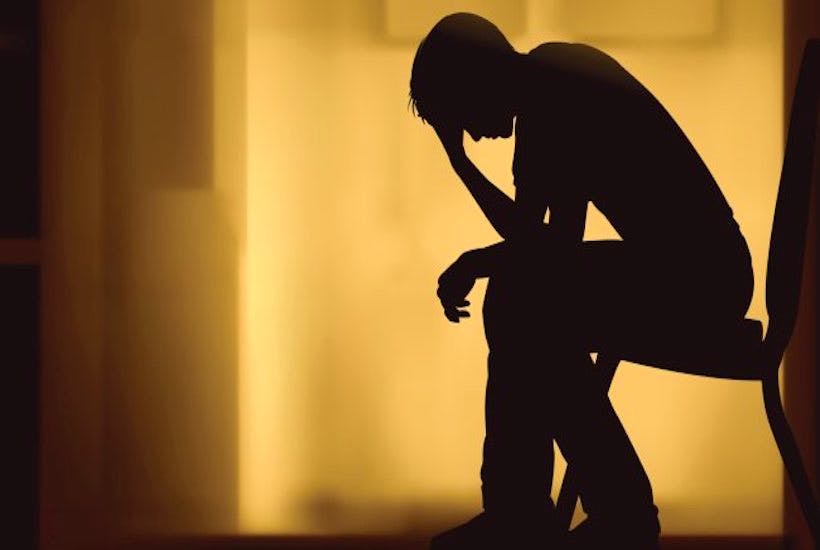My name is Rob Tiller and I worked as a domestic violence counsellor at Anglicare WA for three years and a couples counsellor at Relationships Australia WA for eight. Both are taxpayer-funded, nation-wide counselling agencies.
Over my employment, I’ve seen thousands of clients, many of whom have been through the family courts. What I’ve learned as a male counsellor working in a service sector influenced on every level by ideological feminists is that fathers and kids are often the biggest losers.
I’d like to share my story and insights to help with your family court inquiry and illustrate why I agree that the family separation ‘industry’ needs an overhaul.
In 2018 I had to part ways with Relationships Australia due to what the self-proclaimed feminist CEO deemed a “breach” of the agency’s domestic violence policy. I was their only male counsellor at the time.
I’d always loved my job and my co-workers were like family. I also had a spotless service record and two recent pay rises so I felt utterly blindsided when called to an executive meeting and told I wasn’t allowed to return to work. My crime: circulating Bettina Arndt’s article Always Beating Up on Men on social media and amongst my professional peers.
Arndt’s article assembled current international data from research studies and government statistics, demonstrating most domestic violence between couples is two-way – a fact I’d never heard in hundreds of hours of mandatory domestic violence training, but a reality I had observed counselling my couple clients from the beginning. This is why I was keen to share Bettina’s report with my colleagues. I thought, “finally, someone is telling the truth about domestic violence.”
Relationships Australia’s Domestic Violence policy, like many other Australian counselling agencies, is a “feminist-framed” and “gendered” (male is to blame) treatment approach based on the Duluth Model of Domestic Violence developed in the early eighties by academic feminist activist Ellen Pence. Her ideology-based theory of DV was formulated from her observations of severe, one-way domestic violence victims at a battered women’s shelter in Duluth, Minnesota.
The now scientifically debunked Duluth Model has unfortunately become adopted policy by a wide range of Australian service providers, many who work in conjunction with the Police and Family Courts. The model offers a black and white definition of DV where men are classified as perpetrators and women as victims. In treatment practice, this means when a man or couple seeks help from a national counselling agency, like Relationships Australia, the prescribed aim is to ‘fix’ him and ‘save’ her.
Gendered models of domestic violence fail to address the degrees of mutual antagonism that characterize what is now referred to as Common Couple Violence, where both sexes co-escalate conflict to the point of aggressive acting out. Yet in the context of ‘fix him’ style interventions, mutual accountability is undermined and couples counselling usually ends up accelerating family breakdown. Cue the Family Courts.
Of course, there are different types of domestic violence. Eminent couples researcher Professor John Gottman explains that decades of academic studies show “situational” common couple violence accounts for 80 per cent of all domestic violence. Gottman states, “situational domestic violence arises from arguments spinning out of control. Both partners tend to be mildly violent, using slaps or shoves to stress their points. Both feel guilty and want to change”.
The other 20 per cent of cases he refers to as “characterological” domestic violence where real perpetrators (mostly males) engage in ongoing, one-way relationship violence. In their letter to the editor of the New York Times, Drs John and Julie Gottman take aim at the Duluth Model of DV and point to its decades of failure to produce any measurable treatment outcomes, “No one has found a treatment that stops characterological DV. To escape potentially dire consequences, the victim needs to separate from the perpetrator and seek safety elsewhere”.
However, political feminists and the mainstream media continually lead us to believe the worst 20 per cent of characterological cases represent all domestic violence. Thanks to organizations like Our Watch and White Ribbon, it’s become the national domestic violence narrative, which equates the average guy who gets into a mild tit-for-tat scrap with a hardcore violent perpetrator. These are two very different types of bloke.
This highly distorted portrayal of domestic violence still annually secures nearly half-a-billion in taxpayer funding for a domestic violence industry that remains statistically ineffective on outcomes. It’s a top-down bureaucracy built on feminist ideology pushing gender-biased policies backed by neither evidence nor results.
This means one-sided ‘fix him’ interventions will continue to fail and salvageable families will continue breaking down. And many more decent dads will exit the Family Courts broke and on the road to potential parental alienation from their kids. When children are separated from their father the mental health of both suffers. Its common sense backed by science.
Unfortunately, the definitions of what constitutes domestic violence keep expanding to include murkier areas outside the realm of physical aggression. Over my counselling career, I’ve observed first-hand how alleged false accusations of DV, sexual assault and child abuse are weaponised against men and fathers and can dramatically tilt the scales of justice.
The good news is there are research-based counselling interventions that promote mutual accountability while helping both sexes learn relationship skills to cool conflict before things boil over. This year the Australian government acknowledged this fact by setting aside $10 million in domestic violence funding for couples counselling for situational common couple violence—again, the most common form of domestic violence.
The bad news would be the political feminist gatekeepers commandeering the taxpayer dollars to continue pushing their baseless ideological policies. These tried-failed-retried strategies are partly to blame for the deaths thousands of alienated Aussie dads, who without access to male-friendly support services, took their own lives. Hopefully, with your help, these destructive anti-male programs will go the way of White Ribbon.
Rob Tiller (robtiller.com.au) is a counsellor specialising in supporting men and couples from his Perth office (or online for out-of-area clients). He’s also available to present a range of personal and professional development workshops around Australia.
Got something to add? Join the discussion and comment below.
Got something to add? Join the discussion and comment below.
Get 10 issues for just $10
Subscribe to The Spectator Australia today for the next 10 magazine issues, plus full online access, for just $10.


























Comments
Don't miss out
Join the conversation with other Spectator Australia readers. Subscribe to leave a comment.
SUBSCRIBEAlready a subscriber? Log in